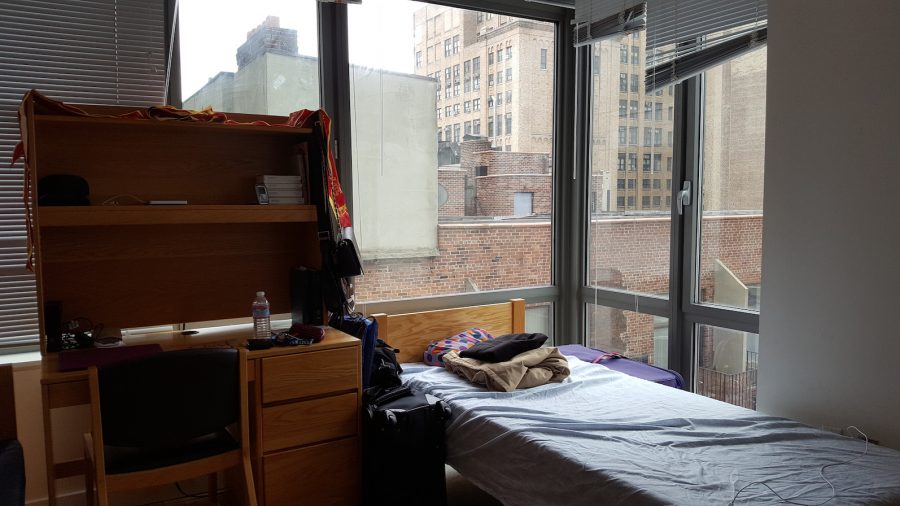Are Segregated Dorms the Answer?
Gramercy Green is known as one of the best NYU dorms, but with segregation, not everyone would have the opportunity to live there.
September 12, 2016
College students of color across the country are currently questioning whether having segregated dorm houses will create a safer environment for minorities after the California State University of Los Angeles unveiled its new separated housing facilities for black students this semester.
Nine months ago, the CSULA’s Black Student Union wrote a letter of requests for a “themed living community” where black students could “congregate, connect and learn from each other.” This semester, the school revealed the Halisi Scholars Black Living-Learning Community, which immediately sparked media attention about what this represents and what future this represents.
Many supported this movement while others were against this decision. CAS junior Skylar Mealing, a student of color, said she would support the NYU administration working together with the BSU to bring inclusive policies to campus. However, Mealing said the language surrounding the policy could be changed to better define how these living accommodations help students of color.
“To use the term “segregated” creates a negative connotation for the living-learning community that isn’t indicative of what it is,” Mealing said. “They’re creating a black-focused living learning community that is open to anyone. To say ‘segregated’ is to say that these students are being separated by force. I think that it is a step forward. They are creating a space for people of all color to live and learn together about a particular marginalized community.”
In addition, Mealing said colleges in states with a particularly insidious history of racism should consider implementing similar communities within
residence halls.
“We live in a racialized climate, and to create a home of folks with a common interest in dismantling racism is a good thing,” Mealing said. “It’s a step.”
Tisch sophomore Alex Welch presents as white and was also concerned with the language used to describe the residence hall communities.
“The word segregated takes [society] back to a time when segregation was forced,” Welch said. “But since it’s the black students putting the idea forward and not white people, I say more power to them.”
Welch is a fan of safe places on campus and often uses the LGBTQ Student Center as a place to go to meet people like her and talk freely about oppression. Welch said that if enough students don’t feel safe with their current living situation, the university should consider a similar type of housing option like CSULA.
However, some students feel like the “segregated housing” is a step backwards in history, saying this is what the Civil Rights movement fought against. Tisch junior Kyle Schmidt, who presents as white, said he understands the need for unity of within different races but also said racism will never be abolished unless all cultures are constantly integrating.
“NYU is so diverse on its own, we don’t need that,” Schmidt said. “It’s the hub of so many different cultures and nationalities. The reason we are so successful is because we all cooperate and make these ideas together.”
Tisch freshman Jacarrea Garraway signed up for the Black Students Union at NYU, and she thinks that while some students not of color might present hostility, segregating dorms will not help alleviate the situation.
“I love and understand the mission of the BSU, but I don’t think they necessarily want segregated dorms; I see it more as they want to be separated from people who project ignorance onto people of color,” Garraway said. “Many members of the BSU maintain strong relationships with White Allies, so it’s not a matter of separating race but separating conflict.”
A version of this article appeared in the Monday, Sept. 12 print edition. Email Faith Lorraine Gates at [email protected].















































































































































